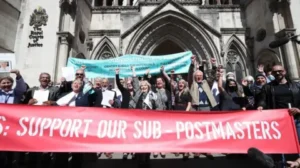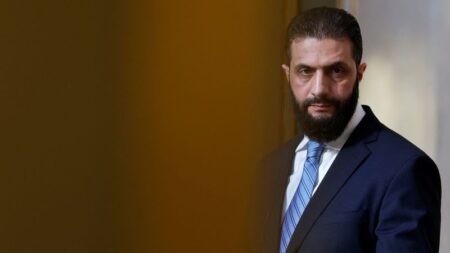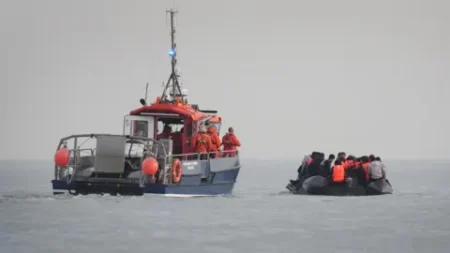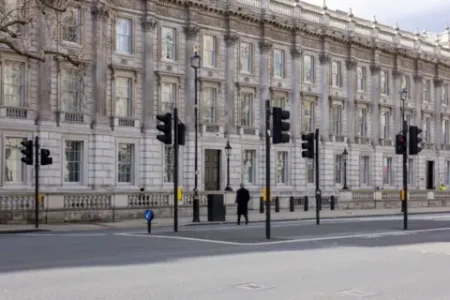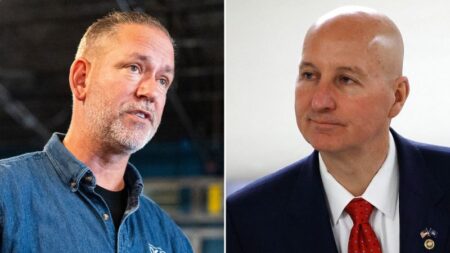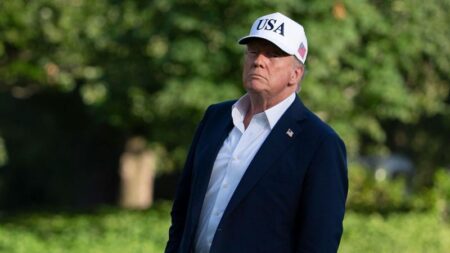The upcoming NATO summit in the Netherlands is poised to be one of the most pivotal gatherings of the alliance in recent history, potentially rivaling the significance of summits during the Cold War. With escalating tensions, particularly following the United States’ recent military actions against Iran’s nuclear sites, the spotlight is firmly on President Donald Trump as he arrives at this critical meeting.
This summit marks Trump’s first NATO assembly since his re-election. Historically, he has voiced strong criticism of NATO member states, accusing them of relying too heavily on the U.S. for security while contributing insufficiently to their own defense budgets. European allies are now more than ever eager to demonstrate their commitment to shared security responsibilities, particularly in light of Trump’s previous threats to withdraw U.S. troops from the continent.
Diplomatic circles have sensed tension among European nations, with one anonymous high-level diplomat expressing uncertainty over whether Trump would attend this summit given the strained relations that have evolved since his return to power. The stakes are particularly high; the vulnerability of NATO’s collective strength during such critical times is under scrutiny, especially with adversarial nations like Russia and China closely observing the proceedings.
NATO Secretary General Mark Rutte has orchestrated this summit with a view to appease the U.S. President, focusing discussions squarely around defense spending. He aims to elevate European defense budgets in line with Trump’s demands, showcasing a commitment to NATO that he hopes will strengthen relationships and mitigate tensions during the event. However, with recent events in Iran, the agenda may be disrupted, potentially deterring Trump from viajeing to Europe.
Should Trump attend, the discussions are almost certain to spill over beyond mere budgetary commitments, given the high-stakes situation in the Middle East. Divergent views between the U.S. and its European allies on matters of defense strategy regarding Iran have the potential to ignite significant discord.
Compounding this pressure is the perception that, while Trump desires a robust NATO commitment from European nations, he simultaneously seeks to secure a visible victory, such as a collective agreement on defense spending set at 5% of GDP — an aspiration that has already faced skepticism with nations like Spain reportedly negotiating exemptions.
Trump’s reputation for unpredictability adds another layer of complexity. He has historically been known for seeking wins that bolster his image, which makes European leaders cautious. They understand that to keep the United States engaged, they must demonstrate serious commitments to defense spending. Still, this challenge is compounded by Europe’s ongoing financial constraints and differing security concerns across the continent.
Poland stands in stark contrast to Spain regarding defense commitments, aiming to bolster its military spending significantly and positioning itself as a regional leader in defense readiness. This contrasts sharply with perceptions elsewhere in Europe, where reluctance and economic constraints hinder progress in increasing military expenditures.
The broader implications of this summit extend far beyond just a financial commitment. Europe’s dependency on U.S. military capabilities is deeply rooted, with the U.S. providing critical support in intelligence and tactical planning. The complexities of modern geopolitics require NATO members to not only increase spending but also to enhance the efficiency of their military structures and avoid duplicating incompatible systems.
As the summit unfolds, the true measure of its significance will hinge upon the willingness of NATO allies to transform their defense strategies and assumptions about security in the context of a changing global landscape. Observers await with bated breath to see how President Trump’s presence will shape the agenda and the outcomes of what may be regarded as a defining moment in the future of NATO. Amid all this, there lies the opportunity for Europe to chart its own course in defense while striving to maintain a cohesive transatlantic relationship.


